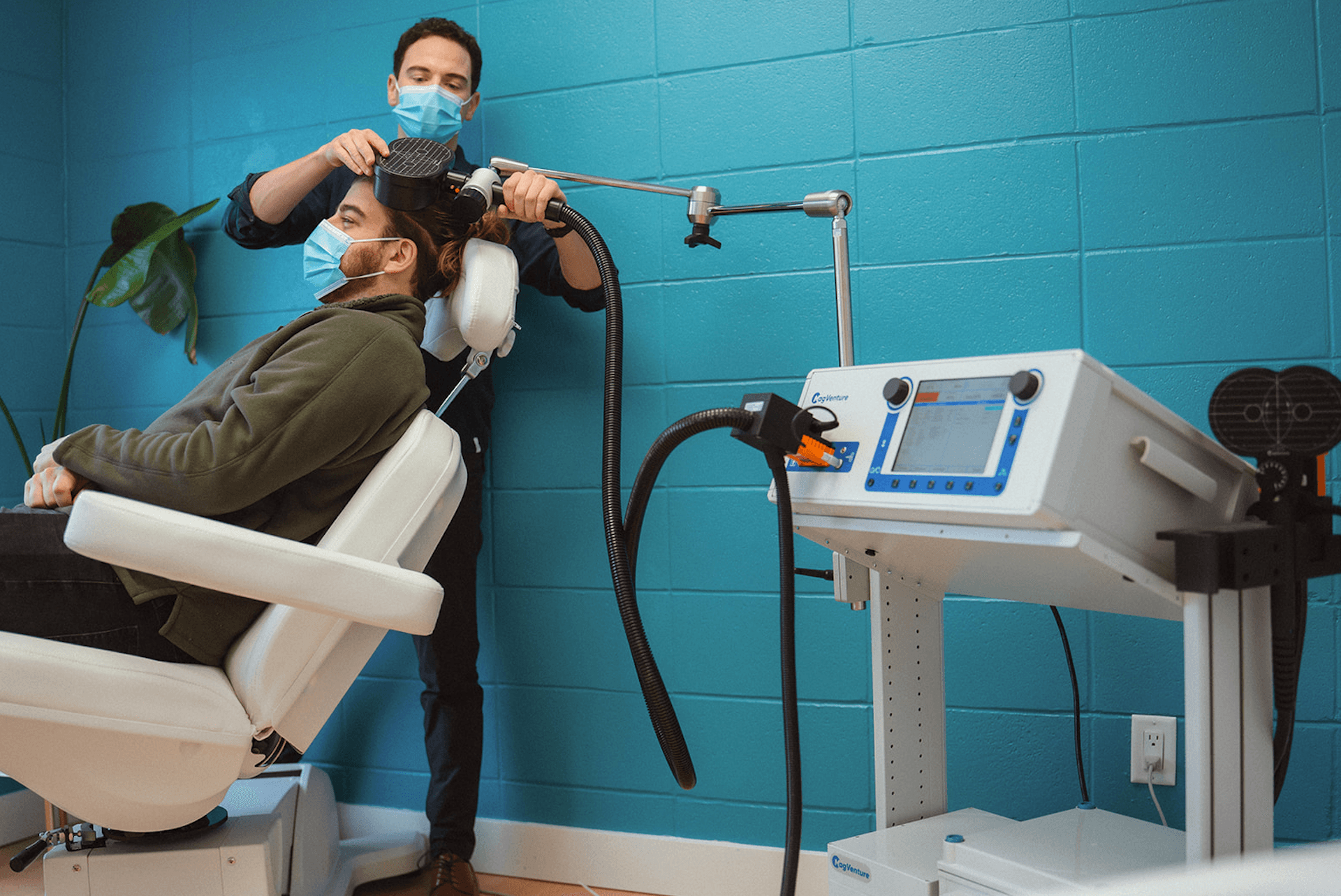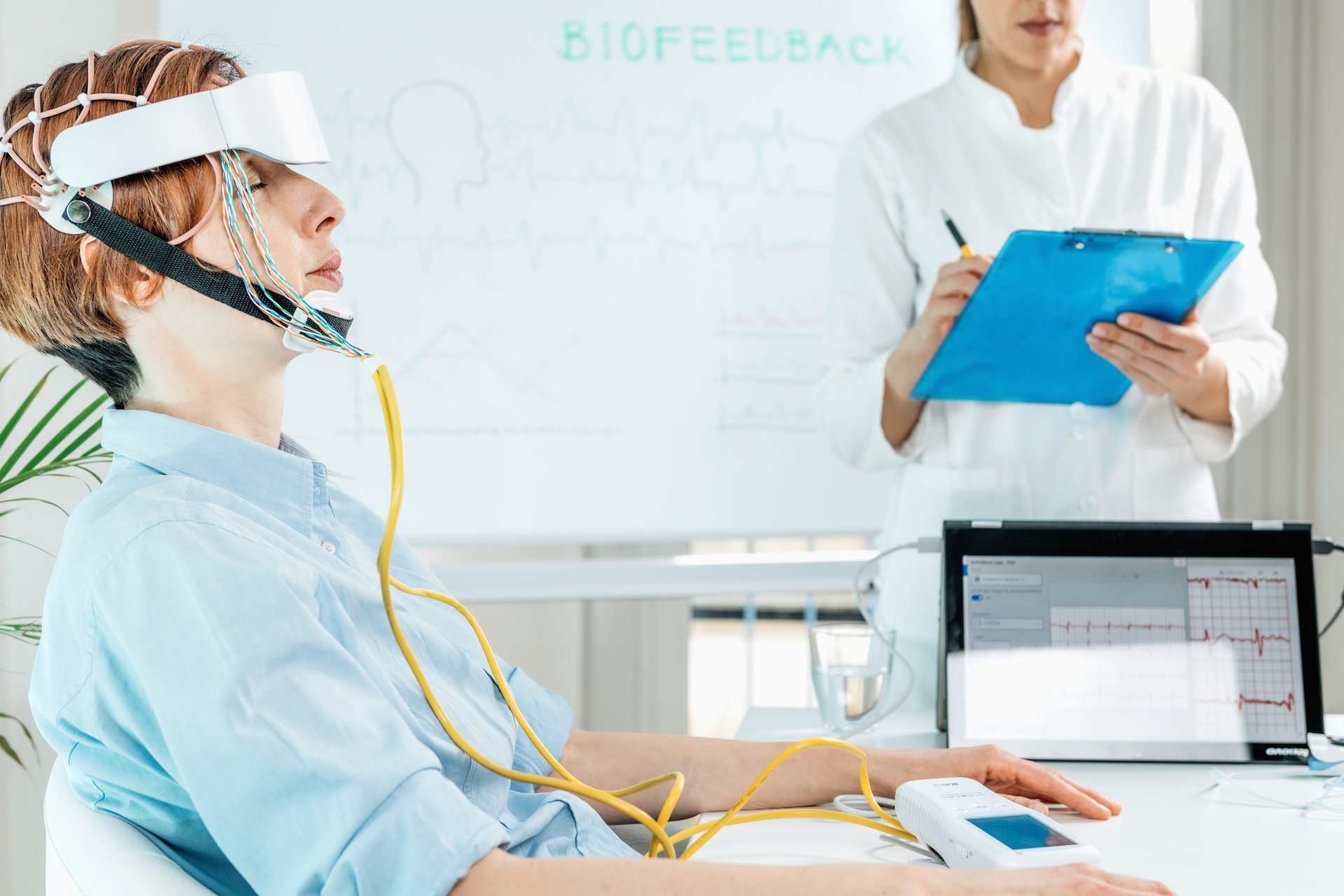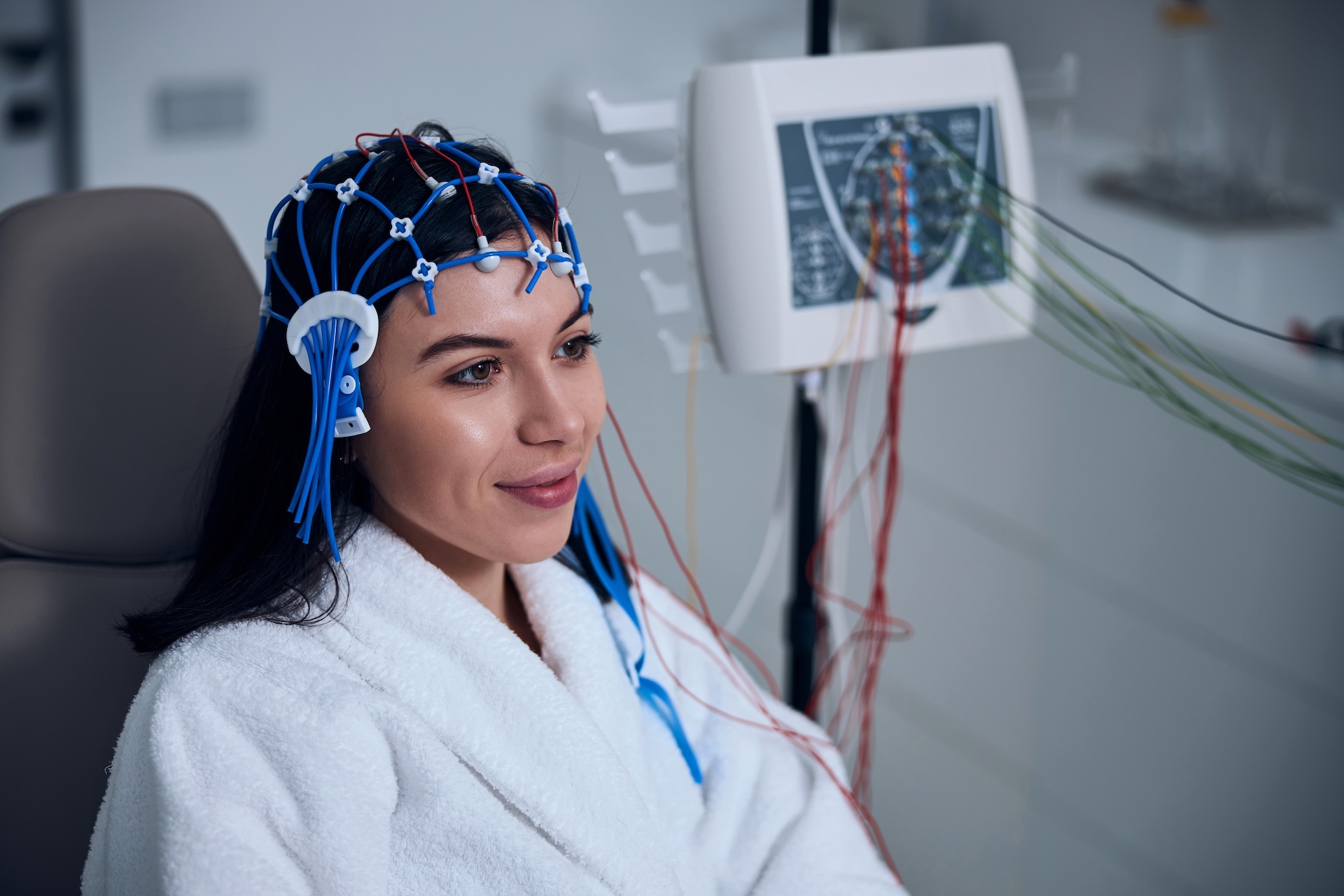Best TMS Therapy Clinics in Los Angeles


Discover top-rated TMS therapy clinics in Los Angeles for effective mental health treatments. Compare TMS therapy vs neurofeedback options today.
Choosing the right clinic for mental health treatments in Los Angeles, such as TMS therapy and neurofeedback, is crucial for your recovery journey. At the Forge Recovery Center, we understand the complexities involved in treating mental health issues, addiction, and substance abuse. It's important to consider both options: TMS therapy vs neurofeedback, as each offers unique benefits tailored to different needs. In this article, we will explore the best TMS therapy clinics in Los Angeles, helping you make an informed decision to support your path to wellness.
Understanding TMS Therapy

Transcranial magnetic stimulation (TMS) is a non-invasive method where magnetic fields are used to stimulate nerve cells in the brain. It is primarily employed for treating depression, particularly when other treatments haven't been effective.
Benefits for Mental Health Conditions
TMS therapy offers a range of benefits for mental health:
Depression: TMS has been FDA-approved since 2008 for treating medication-resistant depression. Clinical trials have demonstrated its effectiveness in reducing depressive symptoms, with many patients experiencing significant improvements.
Obsessive-Compulsive Disorder (OCD): Approved by the FDA in 2018, TMS helps reduce OCD symptoms by targeting specific brain regions, notably the dorsolateral prefrontal cortex. This treatment has shown to be a viable option for patients who do not respond to conventional treatments.
Anxiety Disorders: Research is ongoing, but results to date suggest that TMS can effectively improve symptoms of anxiety disorders by modulating activity in certain areas of the brain associated with anxiety.
Patient Experiences and Expectations
Engaging with TMS therapy involves:
Treatment Regimen: TMS typically involves sessions lasting 30 to 60 minutes, conducted five times a week over four to six weeks.
Side Effects: Common side effects include headache and scalp discomfort at the site of stimulation. These are usually mild and diminish over time.
Patient Outcomes: Many patients report improvements within the first few weeks of treatment. It is important for patients to have realistic expectations and discuss any concerns with their healthcare provider to tailor the treatment plan accordingly.
These insights into TMS therapy highlight its role as a pivotal treatment option in modern psychiatric care, backed by substantial clinical research and firsthand patient experiences.
Understanding Neurofeedback

Neurofeedback, also known as EEG biofeedback, is a therapy that focuses on helping individuals regulate their brain activity. It uses real-time displays of brain activity—most commonly brainwaves—to teach self-regulation of brain function. This technique relies on sensors placed on the scalp to measure electrical activity. With this feedback, patients learn to produce changes in brainwave patterns, with the goal of enhancing brain function.
How It Helps with Conditions Like ADHD, Anxiety, and Sleep Disorders
Neurofeedback has been applied to a variety of conditions:
ADHD: It is particularly effective for treating ADHD by helping individuals enhance their concentration and reduce impulsivity and hyperactivity. Neurofeedback trains patients to increase beta waves, which are linked to focus, and decrease delta waves associated with inattentiveness.
Anxiety: For anxiety, neurofeedback can help individuals learn to calm their minds and reduce the overarousal often associated with anxiety disorders. This is achieved by modulating the brain's response to stressors.
Sleep Disorders: Neurofeedback can also be beneficial in managing sleep disorders by altering the brainwave patterns that influence sleep, helping individuals to achieve and maintain better quality sleep.
Comparisons in Treatment Approach and Effectiveness with TMS
While both neurofeedback and TMS are non-invasive brain stimulation techniques used to treat mental health conditions, their approaches and mechanisms differ significantly:
Treatment Approach: Neurofeedback is a behavioral training approach where patients actively participate to control and improve their brain function. In contrast, TMS is a passive treatment where magnetic pulses are used to stimulate specific parts of the brain.
Effectiveness: TMS is often used as a treatment for severe depression and has been FDA-approved for this purpose, showing high efficacy in cases where medication has failed. Neurofeedback, while beneficial for a broader range of conditions like ADHD and anxiety, generally requires a longer period to see results and depends significantly on patient participation and consistency.
These therapies offer complementary approaches to mental health treatment, with TMS providing a more targeted intervention for severe cases, while neurofeedback offers a broader application for improving general brain function and self-regulation skills.
Are You Struggling with Mental Health or Addiction?
We Can Help. Call Us Now!
CALL: 877-839-1772
Comparing TMS Therapy and Neurofeedback

Both TMS therapy and neurofeedback have shown promise in the field of mental health treatment, but they serve different purposes and are effective in different contexts:
TMS Therapy: TMS is particularly effective for treatment-resistant depression, having been FDA-approved for this use. It has also shown effectiveness in treating conditions such as OCD and anxiety. Studies have shown that TMS can result in significant symptom reduction in a relatively short amount of time compared to traditional therapies.
Neurofeedback: This treatment is broader in application, effectively addressing conditions like ADHD, anxiety, sleep disorders, and even helping with cognitive enhancement. Neurofeedback requires more sessions over a longer period and involves active participation from the patient, which can influence the outcome.
Side Effects and Non-Invasive Nature of Both Treatments
Both therapies are non-invasive and generally well-tolerated by patients:
TMS Side Effects: The most common side effects of TMS include headache and scalp discomfort at the site of stimulation, which are typically transient and mild. There is a very low risk of seizure.
Neurofeedback Side Effects: Neurofeedback is very safe, with minimal to no physical side effects reported. Some patients might experience temporary fatigue or feel mentally exhausted after sessions due to the concentration involved in the training.
How to Choose Based on Personal Health Goals and Conditions
Choosing between TMS therapy and neurofeedback should be guided by specific health conditions, treatment goals, and personal preferences:
Severity and Type of Condition: TMS is often recommended for severe cases of depression or other mental health conditions that have not responded to other treatments. It is a good option for those looking for a more passive treatment approach.
Active Participation and Long-Term Skill Development: Neurofeedback is suitable for individuals who prefer a more active role in their treatment. It is beneficial for those who are interested in developing skills that can help manage their condition in the long term.
Treatment Accessibility and Commitment: Consideration of the treatment regimen is also important. TMS typically requires daily sessions for 4-6 weeks, which might be demanding for some schedules. Neurofeedback, while longer in duration, usually requires sessions once or twice a week, which might be easier to integrate into daily life.
Ultimately, consulting with a healthcare provider who can offer personalized advice based on an individual's specific medical history, symptoms, and treatment needs is crucial. This guidance can help ensure that the chosen treatment aligns well with one’s health goals and lifestyle.
Top TMS Therapy Clinics in Los Angeles
When searching for a top-notch TMS therapy clinic in Los Angeles, there are several key factors to consider to ensure you receive the highest quality care tailored to your specific needs:
Criteria for Choosing a Clinic
Expertise: Look for clinics with certified and experienced practitioners who specialize in TMS therapy.
Equipment: Ensure the clinic uses the latest, FDA-approved TMS technology to provide the most effective treatment.
Patient Reviews: Reading testimonials and reviews can provide insights into the clinic's success rates and patient satisfaction.
Spotlight on Notable Clinics Offering Personalized Treatment Plans
1. The Forge Recovery Center
Services and Specialties: The Forge Recovery Center is renowned for its comprehensive approach to mental health treatment, including TMS therapy. They specialize in treating a wide range of conditions such as depression, anxiety, and addiction, with a focus on providing personalized care tailored to the unique needs of each individual.
Expertise and Equipment: The center is equipped with state-of-the-art TMS technology and staffed by skilled professionals dedicated to supporting patients throughout their recovery journey.
Patient Reviews: Known for its empathetic and effective treatment plans, The Forge Recovery Center has received high praise from patients for its supportive environment and successful outcomes.
2. Los Angeles TMS Institute
Services and Specialties: This clinic offers specialized TMS treatment plans for depression and other mood disorders, utilizing advanced TMS techniques and protocols.
Expertise and Equipment: The institute prides itself on its team of highly qualified professionals and cutting-edge TMS equipment.
Patient Reviews: Patients often note the personalized attention they receive and the effectiveness of the treatment in improving their symptoms.
3. Pacific Brain Health Center
Services and Specialties: In addition to TMS, this center provides a holistic approach to brain health, offering treatments for psychiatric and neurological disorders.
Expertise and Equipment: Staffed by experts in neurology and psychiatry, the center uses comprehensive diagnostic tools to ensure targeted and effective treatment.
Patient Reviews: Reviews frequently highlight the clinic’s innovative approach and the tangible improvements in patients' cognitive and emotional health.
4. Westside Neurotherapeutics
Services and Specialties: Specializes in TMS therapy for depression and anxiety, providing individualized treatment plans based on detailed assessments.
Expertise and Equipment: The clinic boasts a team of specialists with extensive experience in neuromodulation therapies.
Patient Reviews: Patients appreciate the professional yet warm approach taken by the clinic, often reporting significant relief from their symptoms.
Choosing the right TMS therapy clinic involves considering these factors carefully. Whether you prioritize expertise, cutting-edge technology, or positive patient testimonials, Los Angeles offers several reputable options that cater to a variety of needs and preferences, starting with the exemplary care at The Forge Recovery Center.
Are You Struggling with Mental Health or Addiction?
We Can Help. Call Us Now!
CALL: 877-839-1772
Struggling with Mental Health? We're Here to Help
In this article, we explored the transformative benefits of TMS therapy and neurofeedback, highlighting their effectiveness in treating various mental health conditions such as depression, anxiety, and ADHD. Both treatments offer non-invasive solutions, each with its own unique approach to enhancing brain function and emotional well-being. At The Forge Recovery Center, we understand the challenges you face and are equipped to help you find the relief and recovery you need. We encourage you to consult with our healthcare professionals to tailor a treatment plan that best suits your needs and starts your journey toward recovery.
Are You Struggling with Mental Health or Addiction?
We Can Help. Call Us Now!
CALL: 877-839-1772





